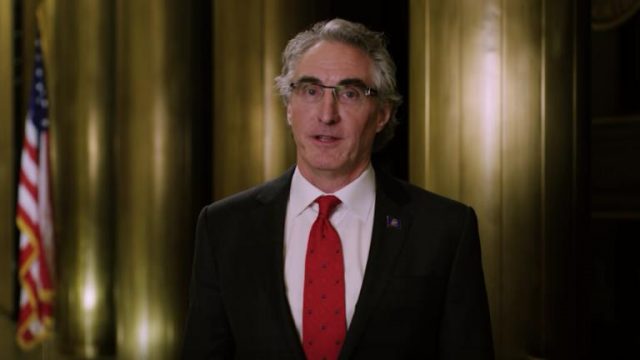The Media Don’t Care About Your Access So Much as They Care About Their Access

On North Dakota Governor Doug Burgum’s first day in office he sent out video message to the public by way of platforms like Facebook, Twitter, and YouTube.
Today the Associated Press published a gripe about politicians who use social media to bypass journalists and control their message, and they cite Burgum’s video message as an example.
Which seems very unfair. The guy has only been in office since December 14, and it’s not like he was avoiding the media. He did an interview with me yesterday (audio here), despite the fact that at times I’ve been quite critical of him, and he did other interviews his first week as well.
If, in the coming weeks and months, Burgum demonstrates a reticence to taking being open for inquiries from the press then sure. Criticize him. But to pounce on him in the first week?
I think it illustrates a larger point about the priorities of professional journalists. They don’t so much care about the public’s access to politicians and public records. They care about their own access.
In fact, in some ways I think they resent the public getting direct access to politicians and public records. Historically it was professional journalists who were the gatekeepers to that sort of thing, with the public largely standing outside the fence.
[mks_pullquote align=”right” width=”300″ size=”24″ bg_color=”#ffffff” txt_color=”#000000″]Many journalists still see themselves as the gatekeepers to public figures and public information, only the gates today are less relevant. The internet has torn the fence down.[/mks_pullquote]
Many journalists still see themselves as the gatekeepers, only the gates today are less relevant. The internet has torn the fence down.
Once upon a time, not so long ago, it was rare for the public to see and hear what their elected leaders had to say in person. These days video of park board meetings is put on YouTube. Press conferences are live streamed. Governors put their messages right on Facebook rather than delivering it to journalists who filter it through their own perspectives and biases before delivering it to the public.
Maybe it’s because I’ve spent most of my career writing politics as a media outsider, looked down upon by professional journalists for having the wrong political point of view and career trajectory, that I see a distinction between press access and public access.
To further illustrate this point, consider that the Associated Press (nor any other professional media outlet in our state) has had much to say about our elected leaders holding open town halls with their constituents. Congressman Kevin Cramer holds more of them than any member of Congress. Senator Heidi Heitkamp has held far fewer, and only on social media. To my knowledge, Senator John Hoeven hasn’t held any.
If the professional journalists were motivated by a pure desire for openness in politics and governance you’d think they’d have something to say about this disparity. But they don’t. Because constituent town halls are for the hoi polloi.
Another example is access to budget information in our state. In years past there have been efforts in the Legislature to put local budgets online where the public can access and scrutinize them (statewide spending is already online). But local governments have successfully lobbied to defeat that legislation, and the state’s newspapers and journalists have largely been silent about it. They didn’t oppose it, sure. But they didn’t exactly go out of their way in support either.
Because they already have relatively easy access to that information. What do they care about the public getting access?
Journalists like to see themselves as representing the public’s right to know. That would be easier to believe if they were a little less hostile to the public getting direct access to politicians and public records.
As we get further into Governor Burgum’s term in office there may be room to criticize him for being something less than willing to take questions from the press. But to pounce on him because he sent a message straight to the people on his first day?
That sort of thing is why trust in the media is at all time lows.




